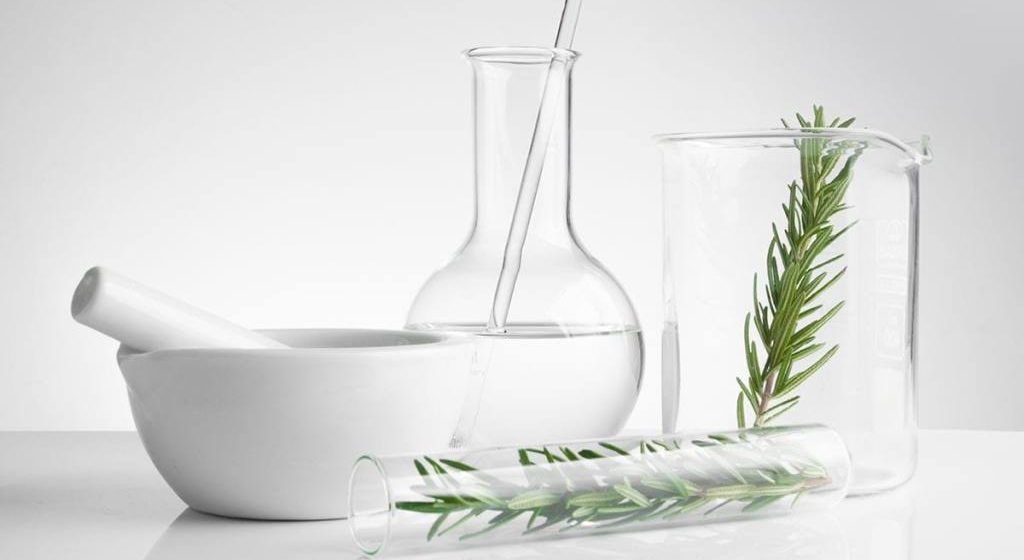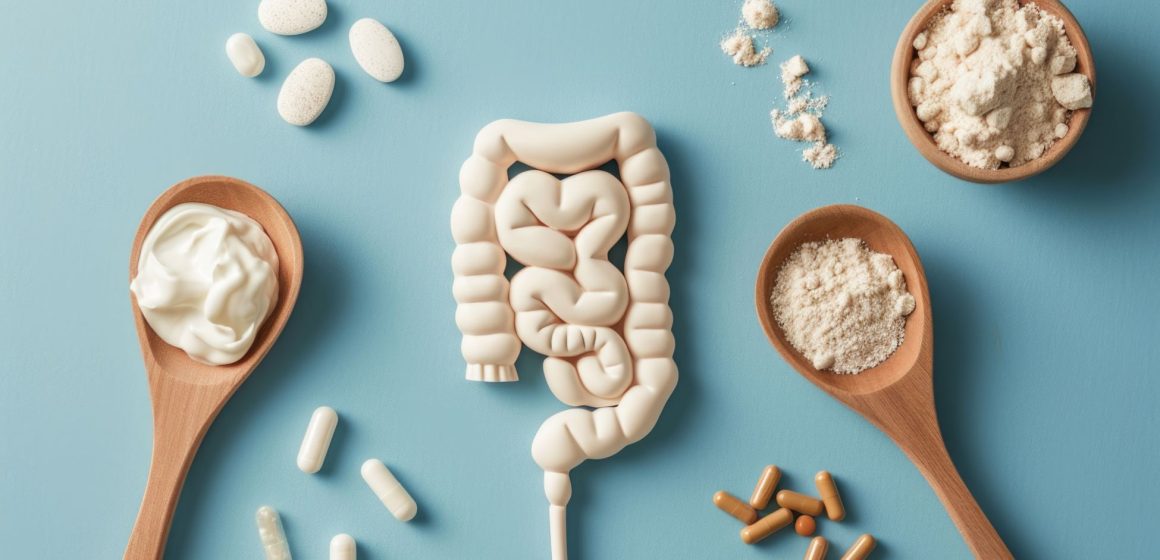If you’re a beauty enthusiast or a skincare aficionado, you’ve likely heard the buzz about probiotics. Traditionally, probiotics are associated with gut health. But did you know that these microscopic organisms can also work wonders for your skin? This blog post will explore the fascinating relationship between probiotics and skin health, and why incorporating them into your skincare routine could be a game-changer.
In this article, we’ll uncover the science behind probiotics, discuss the concept of the skin microbiome, and reveal how probiotics can address common skin issues like acne, eczema, and aging. Plus, we’ll provide expert tips on selecting and using probiotic skincare products effectively. Ready to glow from within? Let’s get started!
Understanding Probiotics and Gut Health
Probiotics are live microorganisms that confer health benefits when consumed in adequate amounts. They’re commonly found in fermented foods like yogurt, kefir, sauerkraut, and kimchi, as well as in dietary supplements. Probiotics are often dubbed “good bacteria” because they help balance the gut microbiota, the community of microorganisms living in our intestines.
A healthy gut microbiota is essential for overall well-being. It aids in digestion, boosts the immune system, and helps fend off harmful pathogens. But the benefits of a balanced gut extend beyond the stomach—it can also impact your skin.
Research shows that gut health is closely linked to skin health. When the gut microbiota is in balance, it supports a strong immune system, reduces inflammation, and promotes nutrient absorption—all of which are vital for radiant skin.
The Skin Microbiome and Its Importance
Just as there is a microbiome in our gut, our skin also hosts a diverse array of microorganisms, collectively known as the skin microbiome. This complex ecosystem includes bacteria, fungi, viruses, and even mites that coexist on the skin’s surface. A healthy skin microbiome forms a protective barrier against harmful microbes, regulates skin pH, and maintains hydration.
The integrity of the skin microbiome is crucial for skin health. When this balance is disrupted—due to factors like pollution, harsh skincare products, or poor diet—skin issues such as acne, eczema, and sensitivity can arise. Maintaining a healthy skin microbiome is essential for achieving clear, resilient skin.
Recent studies suggest that just as the gut microbiome influences the skin, the skin microbiome can also impact the gut. This bidirectional relationship highlights the need for a holistic approach to skincare, where internal and external factors are harmonized for optimal results.
Probiotics and the Skin Microbiome
Probiotics play a pivotal role in maintaining a balanced skin microbiome. By introducing beneficial bacteria to the skin, probiotics can help restore and stabilize this delicate ecosystem. These good bacteria crowd out harmful pathogens, reduce inflammation, and enhance the skin’s natural defenses.
When applied topically, probiotics can fortify the skin barrier, making it more resilient to environmental stressors. They can also regulate sebum production, preventing clogged pores and breakouts. Essentially, probiotics create a healthier environment on the skin, allowing it to thrive.
The use of probiotics in skincare is an emerging field, but the initial results are promising. From reducing redness to improving hydration, probiotics offer a natural and effective way to support skin health.
Benefits of Probiotics in Skincare
Acne
Acne is often caused by an overgrowth of harmful bacteria and inflammation. Probiotics can help by rebalancing the skin microbiome and reducing inflammation from within. Studies have shown that certain probiotic strains can inhibit the growth of acne-causing bacteria, resulting in fewer breakouts and clearer skin.
Eczema
Eczema, or atopic dermatitis, is a chronic inflammatory skin condition that causes redness, itching, and dryness. Probiotics can alleviate eczema symptoms by strengthening the skin barrier and reducing inflammation. Some research suggests that probiotics can even prevent eczema flare-ups by modulating the immune response.
Aging
Aging skin can benefit immensely from probiotics. These beneficial bacteria can enhance skin hydration, improve elasticity, and reduce the appearance of fine lines and wrinkles. By maintaining a healthy skin microbiome, probiotics help slow down the aging process and keep skin looking youthful and vibrant.

Forms of Probiotics in Skincare
Probiotics in skincare come in various forms, from topical creams and serums to oral supplements. Here’s a closer look at each:
Topical Probiotics
Topical probiotics are applied directly to the skin through products like cleansers, moisturizers, and masks. These formulations contain live bacteria or bacterial lysates that help balance the skin microbiome. Look for products with ingredients like Lactobacillus, Bifidobacterium, and Saccharomyces.
Oral Probiotics
Oral probiotics, taken as supplements or through fermented foods, support the gut microbiome, which in turn benefits the skin. By improving gut health, oral probiotics can reduce systemic inflammation and promote clearer, healthier skin.
Fermented Skincare
Fermented ingredients are rich in probiotics and other beneficial compounds. Skincare products containing fermented extracts, like fermented rice water or fermented tea, can deliver probiotics alongside vitamins, amino acids, and antioxidants for a comprehensive skin boost.
Choosing the Right Probiotic Skincare Products
When selecting probiotic skincare products, consider the following tips:
Check the Ingredients
Look for products that list specific probiotic strains, such as Lactobacillus or Bifidobacterium. Avoid products with harsh chemicals or preservatives that can disrupt the skin microbiome.
Consider Your Skin Type
Choose products tailored to your skin type and concerns. For example, if you have acne-prone skin, look for non-comedogenic formulations that won’t clog pores.
Read Reviews
Customer reviews can provide valuable insights into a product’s effectiveness. Look for feedback from users with similar skin concerns to gauge whether a product might work for you.
Expert Insights on Probiotic Skincare
Leading dermatologists and skincare experts advocate for the inclusion of probiotics in daily skincare routines. According to Dr. Whitney Bowe, a renowned dermatologist, “Probiotics can help create a healthier environment on the skin, making it more resilient and vibrant.”
Experts recommend starting with a probiotic cleanser or moisturizer and gradually incorporating more products as your skin adjusts. Consistency is key—regular use of probiotic skincare products can yield long-term benefits.
Incorporating Probiotics into Your Daily Routine
To get the most out of probiotics, integrate them into your daily skincare regimen. Here’s a simple routine to follow:
Morning Routine
- Cleanser: Use a gentle probiotic cleanser to remove impurities without stripping the skin.
- Toner: Apply a hydrating toner to prepare the skin for the next steps.
- Serum: Follow with a probiotic serum to target specific skin concerns.
- Moisturizer: Finish with a probiotic-infused moisturizer to lock in hydration.
Evening Routine
- Cleanser: Start with a probiotic cleanser to remove makeup and dirt.
- Exfoliate (2-3 times a week): Use a gentle exfoliator to remove dead skin cells.
- Toner & Serum: Apply as in the morning routine.
- Night Cream: Use a rich, probiotic night cream to nourish the skin overnight.
Conclusion
Probiotics are revolutionizing the skincare industry by offering a natural and effective way to enhance skin health. From tackling acne to soothing eczema and combating aging, these beneficial bacteria can transform your skincare routine.
Ready to experience the glowing benefits of probiotics? Start incorporating probiotic products into your regimen today. And don’t forget to share your experiences and questions with our community of skincare enthusiasts. Your journey to radiant skin begins now!


Leave a Reply